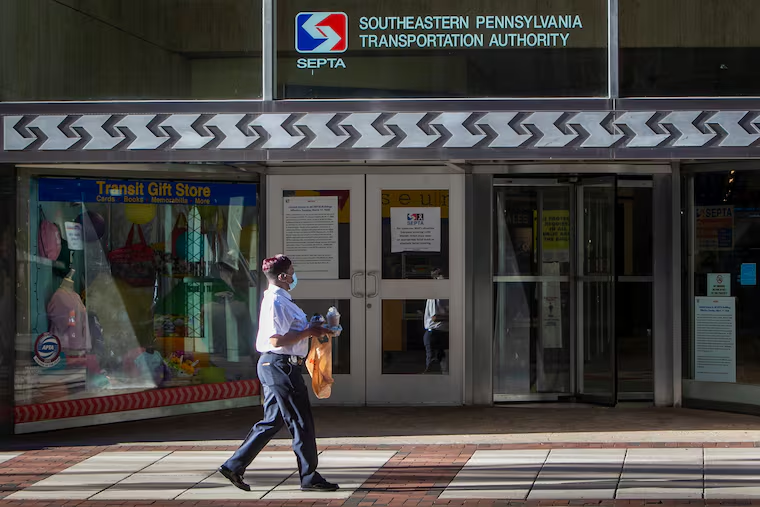A customized SEPTA Key is coming for Philadelphia students, adding to the card system’s inflating cost
The modifications come as part of a long-standing endeavor to bring students using paper passes into the modern age.

SEPTA is moving forward with requests from the School District of Philadelphia that would bring students using paper passes into the modern age but come as another unexpected cost for its smart fare system, now inching closer toward a $200 million price tag.
The authority’s governing body approved a $500,000 spending increase Thursday to Conduent Inc. on the Key’s primary contract, inflating its total cost to $193.3 million from $122.2 million in 2011, when the project began. More than 60,000 students are provided a SEPTA TransPass, and while a way to bring them onto the Key system has been years in the making, plans have shifted to make room for customized features.
SEPTA had planned to give students pre-loaded passes based on the school calendar, but modifications approved Thursday will allow school officials to make changes such as allowing for more “taps” to get students to an extracurricular activity. School officials also will be able to view a student’s trip history as well as flag a lost card or activate a new one, said Kevin O’Brien, SEPTA’s senior program manager for the Key.
SEPTA would not have access to student information, O’Brien said. And the district’s transportation services won’t use the information to keep track of attendance, spokesperson Monica Lewis said.
“It’s more ability to manage it, whereas the other one, it was just this pass, they could use it, and there was no way to modify it or anything," O’Brien said. "It was that for the whole semester or the whole school year.”
The changes update SEPTA’s process of putting out notices to operators and cashiers when student passes are invalid because of a school closure, for example, or adding “a sticker” to passes indicating a student attends an after-school activity, said Rich Burnfield, SEPTA’s treasurer and deputy general manager.
The “Key-card product” could be ready for a pilot early next year, he said. School District students are poised to return to in-person learning in November, and SEPTA has ordered paper passes in preparation.
» READ MORE: Activists call for Comcast and other providers to guarantee faster, free internet for students
The Key as SEPTA riders have come to know it “does not match [the district’s] needs and does not fit for the transportation of students who are eligible for transportation at no cost,” Lewis said in a statement. Students will benefit since they may “no longer have to worry about keeping track of weekly passes and instead will have a card that they can use for the entire year,” she said.
“As we gain better understanding of how students are using the Key cards, we will be able to better customize and personalize use,” Lewis said. “Right now we apply blanket rules to all students taking transportation.”
» READ MORE: Substitute teachers are in high demand for school districts trying to fill vacancies in a pandemic
The changes mark another glacial step forward for SEPTA’s smart fare system, once expected to fully roll out in 2014. The process has been full of hiccups, including unexpected card expirations, a confusing website, and days when cards just don’t work.
The Key has rolled out to trolley, bus, and subway riders, but its pay-as-you go feature was added for Regional Rail users only this summer. A pilot program to use the Key aboard SEPTA’s Customized Community Transportation is expected soon.
The board’s last spending increase to the contract, approved in October, included $4.4 million to replace more than 4,200 obsolete card readers. The move would make it possible for riders to pay with a credit card or digital wallet, but Burnfield was unable to say when that hope will manifest into a reality.
SEPTA will receive 35 upgraded units over the next two months that will be used to help the authority prototype them aboard various vehicles, O’Brien said.
“It’s all a lot of work," he said. “It’s not just you turn a switch on and replace them.”